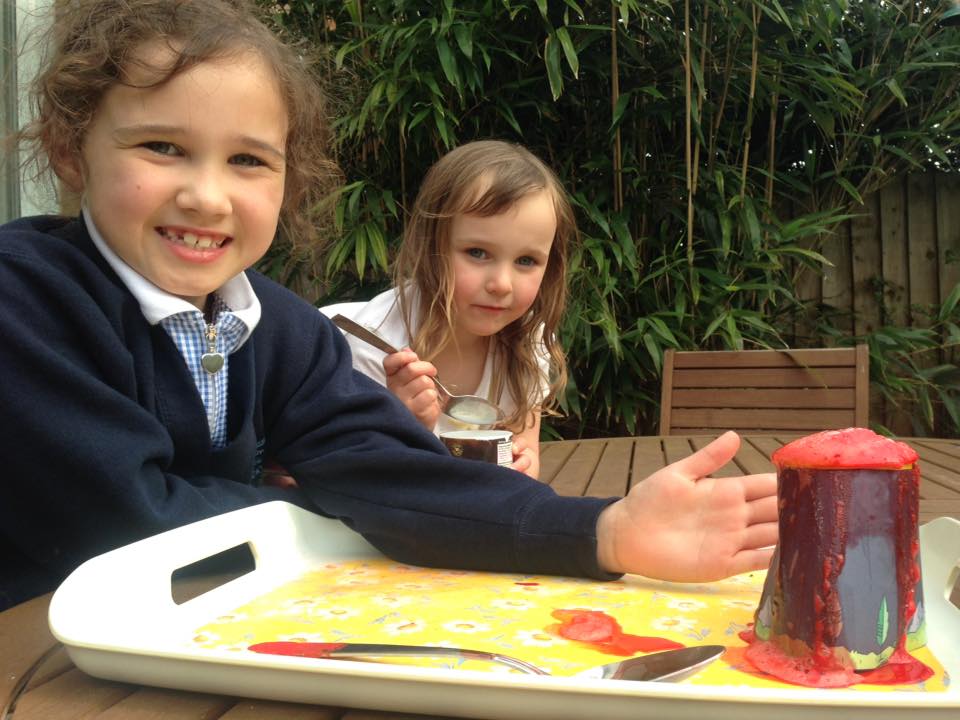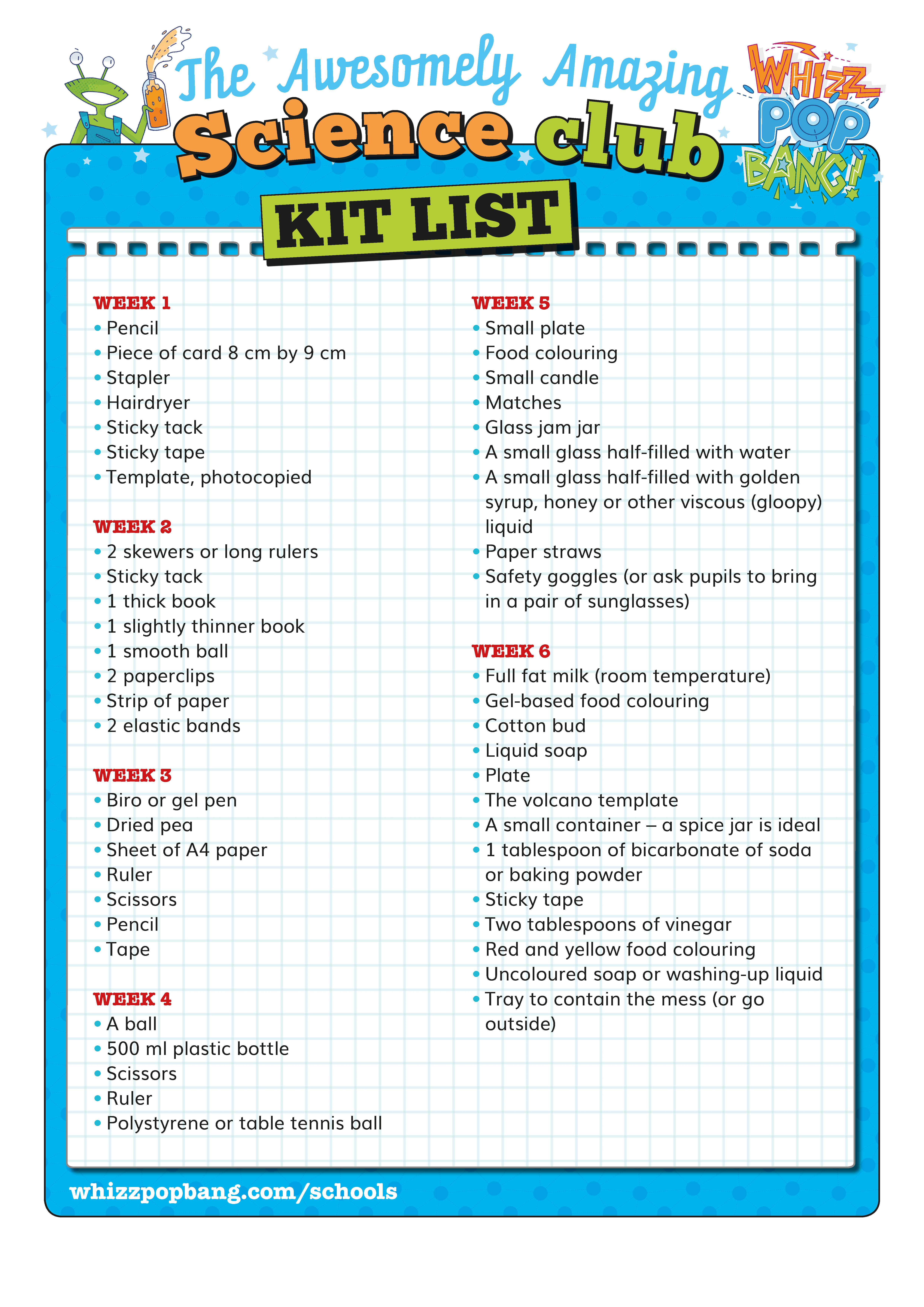 Taking part in a science club is a wonderful way for children to engage with science from an early age. It gives them an introduction to scientific methods, helps them to develop a love of science and can give them the confidence to continue studying science further up their schooling.
Taking part in a science club is a wonderful way for children to engage with science from an early age. It gives them an introduction to scientific methods, helps them to develop a love of science and can give them the confidence to continue studying science further up their schooling.
The free downloadable plans for our Awesomely Amazing Science Club make it easy for anyone to run a science club. The activities are aimed at children aged 6 to 11 and are not linked to the National Curriculum. Instead, the experiments are designed to capture children’s imagination and to spark a love of hand-on practical science, using simple household materials.

Easy, planned activities
We recognise that running a science club can be a daunting and time-consuming prospect for many teachers, volunteers and parents. You might have a wealth of science expertise but lack the time to plan the activities each week, or you might not be a science expert and feel you don’t have enough experience or knowledge. The Awesomely Amazing Science Club solves all these problems by giving you blocks of six weeks of planned activities, all with the scientific explanations behind the experiments. Each session should take somewhere between 40 to 50 minutes to run, depending on the age of the children.
The Awesomely Amazing Science club is full of exciting science to generate curiosity and questioning. Each week begins with a starter activity, which will generally be led by the adult running the club (this section is called ‘Teacher-led activity’ on the plans). This is a demonstration done by the adult to excite and encourage questioning. Don’t worry, it includes the science behind the activity too, so that you can confidently explain it to your keen scientists.
The second part of the session is an activity for children to try themselves. Here, children will have fun experimenting with a hands-on activity.

Further investigations
Once children have finished the hands-on activity, encourage them to think of ways they could take the investigation further. What else would they like to find out? Come up with some ‘What if?’ questions and give them the opportunity to design their own mini experiments to investigate further at home or in the session.
Bear in mind that to carry out further investigations, it’s important to only change one thing at a time. For example, if you’re making a volcano using vinegar, bicarbonate of soda and washing-up liquid, you could investigate what would happen if you used more or less of one ingredient. What happens if you warm the vinegar? What happens if you use cola instead of vinegar? What happens if you omit the washing-up liquid? Change only one variable at a time so that you can see the effect it has on the volcano and discuss with the children why they think that effect might have happened. Children could also make predictions beforehand and record their observations in a results table.
Preparation
Alongside each six-week block of the Awesomely Amazing Science Club, we provide a downloadable kit list that details all of the materials and equipment you’ll need that term. We always try to use inexpensive household items; there may be a few items you may need to collect or ask your science club members to bring along.
Make sure you consider any health and safety implications before each session. Conduct a risk assessment and ensure that any potential hazards are minimised. You also need to make sure that adequate insurance is in place for the club; all activities are conducted entirely at your own risk. Launchpad Publishing Ltd accepts no responsibility for any accidents or damage done.

Make sure you have fun!
We hope that you’re able to enjoy the sessions as much as the children will do! In running a science club, you are massively improving the children’s exposure to science, which has huge benefits for them in many aspects of their lives.
Don’t panic if you don’t know the answer to a scientific question. Unanswered questions are one of the most appealing and exciting aspects of science – scientists don’t have all the answers, there are millions and millions of unanswered questions in science! Praise the child for asking the question and encourage them to try to find out the answer for themselves with further investigations or by doing some research in books or online.
And don't worry if an experiment doesn't turn out the way you thought it would! 'Failed' experiments offer wonderful opportunities for further questions and investigations – why didn't it work as you expected? What could you try differently next time?
Keep in touch
We hope you find the ideas useful. If you have any feedback or suggestions, please email us at hello@whizzpopbang.com – and we'd also love to see your photos and videos too! Share them via our social media channels:
Please help us to spread the word about our free science club plans so that thousands of children all over the world can enjoy awesome hands-on science sessions. Simply share this link with your friends and colleagues:
We hope you and your club members have loads of awesome science fun!
